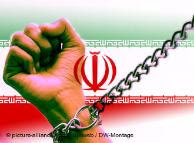They're Here, They're Queer, It's No Big Deal
Gay Israelis have been serving openly in the military for 17 years, and their country is safer for it.
BY DANNY KAPLAN | FEBRUARY 3, 2010

Viewed from Israel, the continuing witch hunt against gays and lesbians in the U.S. military makes little sense. I have studied and written about the experience of gay soldiers in elite combat units of the Israel Defense Forces, where restrictions on gay enlistment were lifted in 1993, the same year the United States introduced the "don't ask, don't tell" policy requiring gay and lesbian servicemembers to say in the closet or risk being discharged. There has never been any suggestion that the participation of these men has hindered the performance of Israeli combat units.
The United States and Turkey are now the only NATO military powers that do not allow gays to serve openly, but Israel and other countries have shown that the participation of gay soldiers in combat units presents no risk for military effectiveness. What's more, acknowledging their presence might even improve unite cohesion.
It is important to understand that even without restrictions, most gay soldiers do not "come out" in combat settings. Only a few of the soldiers I have interviewed confided their sexuality in friends from the unit, and they often did so shortly before leaving their position. Most of them developed strategies to separate between their various personal and social identities. One soldier, a gay activist prior to his enlistment, explained to me: "I don't really see that the army and my identity have anything to do with each other. Just like there is a separation of religion and state, I draw a line between the army and my ‘religion.'" This ability to balance conflicting identities is hardly unusual in the army. Soldiers of various ethnic and religious backgrounds similarly adjust to the melting pot of military culture.
This is why the policy of "don't ask, don't tell" has little relevance to the reality of military life. Despite what military officials want to ask or insist on not asking, and despite what gay activists want soldiers to tell about their sexuality, most straight soldiers are not interested in hearing it, and many gay soldiers are not interested in telling it. They simply are what they are and find ways to function together. Policies restricting the participation of gay soldiers paradoxically make sexuality a more salient issue.
Opponents of allowing gays to serve openly often point to the aggressive macho culture that dominates military units. But it is also hardly news that the military is a male-dominated homo-social institution based on intimate emotions between fellow soldiers. From the ancient Greeks, Romans, and Vikings to modern Israelis and Americans, close male bonding is a widely acknowledged component of military acumen. Regardless of sexual orientation, soldiers' erotic tensions are managed, controlled, and then channeled and used as an aggressive driving force to strike the enemy.








هیچ نظری موجود نیست:
ارسال یک نظر